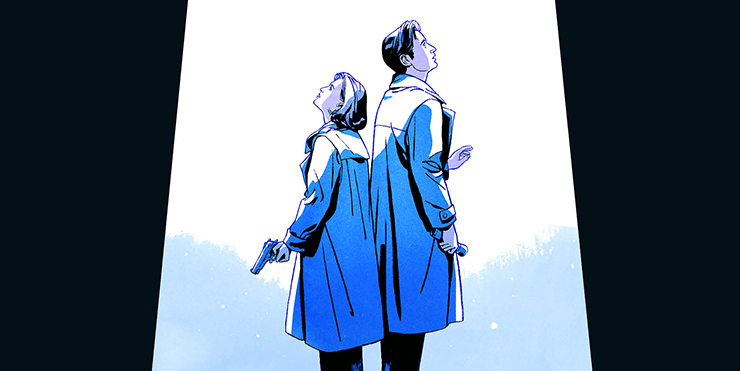Emily keeps asking me to do another rundown of all the things I’ve been reading/watching/playing during quarantine. I’ve decided to finally take her advice, as that is the purpose of this blog after all. I’ve divided it into several posts for easier reading.
And speaking of reading, I’ve been doing soooooooo much of it. Let me tell you, it’s everything I’d dreamed virtually unlimited reading time would be. In a word: glorious.
Here are a few of the highlights.
—————
Monsters of the Week by Zack Handlen and Emily Todd VanDerWerff
If you’re an X-Files enthusiast, this book is literally a must own. Handlen and VenDerWerff go season by season, episode by episode, taking a deep-dive into all the things that make the X-Files one of the greatest ever entries into the pop culture canon. A weird little show that started as an unexpectedly successful cult favorite, and somehow moved to the very center of the zeitgeist.
The writers lovingly pore over every episode, from the hilariously awful, to the ones that have stood the test of time as some of the greatest hours in the history of television.
Rest assured, they make no effort in trying to defend the overall arc of the mythology, which went all the way off rails in later seasons. But, as devoted fans know, the episodes where the show really shines, the ones that changed television forever and hold up to this day, are the isolated monsters of the week. Hey, that’s the name of the book!
—————
The Drawing of the Three by Stephen King
It’s Stephen King, so what really needs to be said? This is the second book in The Dark Tower series, and it’s impossible not to get pulled into this eight book saga that spanned three decades between the first and final installments.
————-
Strange the Dreamer and Muse of Nightmares by Laini Taylor
I loved the story told in these two volumes. Even by the lofty standards of Taylor’s other work, it’s uniquely beautiful.
Normally, due to my massive ‘to-read’ shelf, I self-enforce a strict moratorium on book buying unless I’m physically visiting an independent bookstore. And yet, the moment I read the final page of Strange the Dreamer, I broke the embargo and ordered Muse of Nightmares. So, be warned, you may not want to finish the first book without having the second close at hand.
—————

—————
The Memory Police by Yoko Ogawa
Beautifully lyrical, literary speculative fiction. There’s no attempt to explain the how of the premise, just a beautiful and heartbreaking rumination on the way our memories, and our relationship to the world, make us who we are.
—————
Old Man’s War by John Scalzi
Paperback sci-fi of the very highest order. This one is a modern classic. A fast, super fun read.
—————
And of course, no reading list of mine would be complete without a few of the graphic novels I’ve been reading.
—————

—————
Low by Rick Remender
In (perhaps) a distant future earth, after people have been pushed to the depths of the ocean after the surface becomes unlivable, society is waiting out the clock with the end of the world in sight. In the shadow of certain doom, and unspeakable personal tragedy, one woman continues to cling to hope.
This beautifully drawn and colored book depicts a world as brutal and ugly as our own, and asks us if we can still choose to believe in a better future.
“To resist the depths of the world’s sorrow, the truth of one’s heart must be honored. Even when what we are isn’t what we wish we were… or what others want us to be. Even when we want to turn away from it. When it becomes a burden. A compromised soul dies a million deaths in that final claustrophobic moment of realization… never compromise yourself.”
—————

—————
Check, Please!, Book 2: Sticks and Scones by Ngozi Ukazu
The second – and final – volume collecting Ukazu’s delightfully charming webcomics about Eric Bittle, a figure skater and baking vlogger whose skating skills land him an athletic scholarship to play for a Division I college hockey team.
Check, Please is the story of an outsider who finds acceptance, love, and the courage to take ownership of who he is. If you want to laugh out loud, smile a lot, and tear up a few times from pure joy, then this is the comic for you.
—————
I also caught up on Gideon Falls, which I’ve already written about.
—————

—————
And there you have it, the very best things I’ve been reading while it’s actually accurate to say I have all the time in the world.















